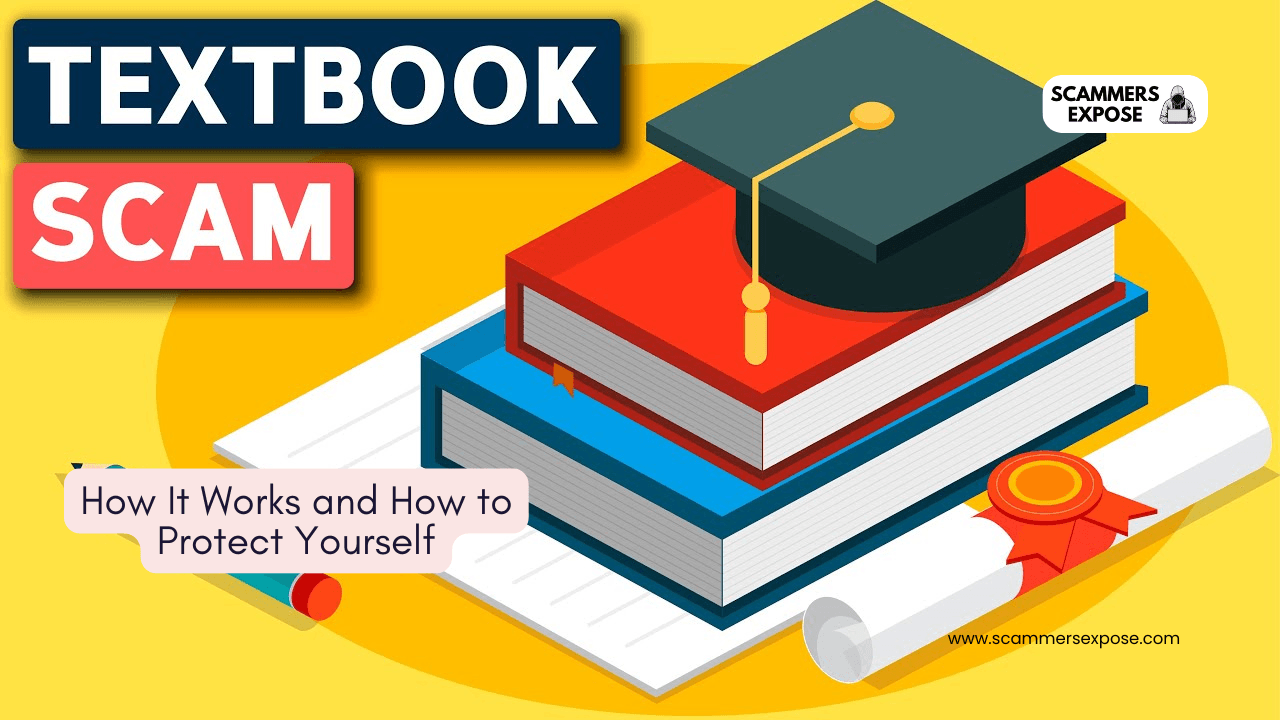The UPSC Scam has sent shockwaves through India’s civil services community, with numerous allegations and controversies emerging around the examination process. As one of the most respected institutions, the UPSC faces scrutiny like never before, leaving aspirants and the public questioning the system’s integrity.
What is the UPSC Scam? An Overview
The term “UPSC Scam” refers to allegations and controversies surrounding the Union Public Service Commission (UPSC) examinations, one of India’s most prestigious and competitive exams. Many perceive this scam as a potential threat to the integrity and transparency of the UPSC selection process.
Understanding the UPSC Examination Process
- UPSC Exam Structure: The UPSC exam, including the Civil Services Examination (CSE), is conducted in three stages: the Preliminary Examination, the Main Examination, and the Personality Test (Interview). Each stage is designed to filter candidates through rigorous evaluation.
- Reputation and Trust: The UPSC has long been regarded as a fair and merit-based institution responsible for selecting officers who go on to serve in various civil services, such as the IAS, IPS, and IFS. However, any mention of a “UPSC Scam” overshadows this reputation.
Alleged Issues Leading to the UPSC Scam Controversy
- Paper Leaks: One of the primary allegations fueling the UPSC Scam narrative is the leak of exam papers. Such leaks undermine the exam’s fairness and raise questions about the security measures in place.
- Impersonation: Instances have been reported where candidates have used impersonators to take the exam on their behalf, further contributing to the UPSC Scam concerns.
- Manipulation of Results: Allegations have surfaced about manipulating results, where undeserving candidates are allegedly given preference due to connections or bribes.
Public Perception and Media Coverage
- Social Media Uproar: The term “UPSC Scam” gained traction on social media platforms, where aspirants and concerned citizens voiced their frustrations and suspicions.
- News Reports: Various news outlets have covered these alleged scams, often sensationalizing the issue and adding to the public’s concern about the integrity of the examination process.
Actions Taken by UPSC and Authorities
- Investigation and Reforms: In response to the UPSC Scam allegations, the UPSC and government authorities have launched investigations and implemented stricter measures to prevent future discrepancies.
- Legal Proceedings: Several individuals involved in alleged scams have faced legal actions, and there have been calls for more stringent penalties to deter such activities.
Why the UPSC Scam Matters
- Impact on Aspirants: The UPSC Scam can demoralize genuine aspirants who dedicate years to preparing for the exam, leading to losing faith in the system.
- Integrity of Civil Services: The integrity and efficiency of the civil services are vital for governance in India. Any UPSC Scam poses a risk to the meritocratic principles that are supposed to guide these selections.
The phrase “UPSC Scam” encapsulates a range of concerns and allegations that, if true, could seriously undermine the credibility of the UPSC examination process. Aspirants must be aware of these issues and stay informed.
Key Allegations and Controversies Surrounding the UPSC Scam
The UPSC Scam has sparked a series of allegations and controversies that have caught the attention of aspirants, authorities, and the general public alike. These allegations threaten to tarnish the credibility of the Union Public Service Commission (UPSC) and its examination process.
Major Allegations in the UPSC Scam
- Paper Leaks: One of the most serious allegations associated with the Scam is that question papers were leaked before the exam date. This compromises the integrity of the exam and gives an undue advantage to those who can access these leaks.
- Bribery and Corruption: Another significant controversy in the Scam revolves around bribery. There are claims that candidates have paid large sums of money to secure favorable results or gain access to question papers ahead of time.
- Impersonation Fraud: Instances of impersonation, where individuals allegedly sit for the exam on behalf of the actual candidates, have also been reported. This practice is illegal and a major factor fueling the UPSC Scam controversy.
Controversies Adding to the UPSC Scam Narrative
- Bias and Favoritism: Allegations of bias and favoritism have surfaced, suggesting that some candidates receive preferential treatment based on connections or influence, further feeding the UPSC Scam concerns.
- Questionable Selection Process: There have been claims that the selection process is manipulated to favor certain candidates, undermining the merit-based system that the UPSC is known for. This manipulation is a central point in the Scam allegations.
- Digital Manipulation: With the rise of technology, there are also claims that UPSC’s digital platforms and examination software could be vulnerable to hacking or manipulation, leading to potential tampering with results.
Public and Media Reaction to UPSC Scam Allegations
- Media Sensationalism: The Scam has been widely covered in the media, often with sensational headlines that amplify the allegations and controversies. This has contributed to widespread concern among the public.
- Social Media Impact: Social media platforms have played a crucial role in spreading information and misinformation about the UPSC Scam, with many users expressing outrage and demanding transparency from the authorities.
UPSC’s Response to the Scam Allegations
- Official Denials: The UPSC has repeatedly denied any involvement in scams or corrupt practices, stating that the examination process is transparent and fair. However, these denials have done little to quell the UPSC Scam rumors.
- Enhanced Security Measures: In response to the allegations, UPSC has reportedly implemented stricter security measures, such as biometric verification and CCTV surveillance, to prevent future occurrences related to the UPSC Scam.
The Ripple Effect of the UPSC Scam
- Erosion of Trust: The UPSC Scam has significantly eroded trust in the examination process, with many candidates questioning the legitimacy of their results and the system’s fairness.
- Legal Battles: Several legal cases have emerged due to the UPSC Scam, with candidates and whistleblowers challenging the integrity of the examination process and seeking justice.
The UPSC Scam allegations have cast doubt over one of India’s most respected institutions, with far-reaching consequences for aspirants and the broader public.
Impact of the UPSC Scam on Aspirants and the Examination Process
The alleged Scam has profoundly impacted both the aspirants who prepare for the Union Public Service Commission (UPSC) exams and the overall integrity of the examination process. This section explores how these controversies have affected the stakeholders involved.
Emotional and Psychological Impact on Aspirants
- Demoralization: The mere existence of the UPSC Scam allegations can demoralize aspirants who dedicate years of their lives to preparing for these exams. The idea that results could be influenced by unfair means undermines their hard work and dedication.
- Increased Anxiety: Aspirants may experience heightened anxiety and stress, fearing that the examination process might not be as transparent and merit-based as they once believed. This anxiety can negatively impact their preparation and performance.
- Loss of Trust: The Scam has led to a significant loss of trust in the system among aspirants. Many now question whether their efforts will be judged fairly, causing them to feel disillusioned with the entire process.
Financial and Time-Related Consequences
- Wasted Resources: Preparing for the UPSC exams requires significant time, money, and effort. If the examination process is perceived as compromised due to the UPSC Scam, aspirants might feel that their resources have been wasted.
- Cost of Legal Action: Some aspirants affected by the alleged UPSC Scam might pursue legal action to challenge unfair practices. This can lead to additional financial burdens and prolonged stress.
Impact on the Examination Process and Administration
- Increased Scrutiny: The Scam allegations have led to increased scrutiny of the entire examination process. This has forced the UPSC to implement more stringent measures to ensure the integrity of the exams.
- Stricter Security Measures: In response to the UPSC Scam concerns, the UPSC has introduced tighter security protocols, including biometric verification, enhanced monitoring during exams, and stricter identity checks to prevent impersonation and other fraudulent activities.
- Potential Delays: Implementing additional security measures and investigating alleged scams could lead to delays in the examination process, affecting the timeline of results and subsequent selection processes.
Long-Term Implications for Civil Services
- Erosion of Meritocracy: The core principle of the UPSC exams is to select candidates based on merit. However, the UPSC Scam allegations challenge this principle, potentially leading to a perception that meritocracy has been compromised.
- Public Perception of Civil Services: The Scam affects aspirants and shapes public perception of civil services. If the selection process is seen as corrupt, it could diminish respect for civil servants and the institutions they represent.
- Challenges in Attracting Talent: The Scam could deter talented individuals from pursuing a career in civil services, as they might perceive the selection process as flawed or biased.
Efforts to Restore Integrity and Trust
- Transparency Initiatives: To combat the negative effects of the UPSC Scam, the commission may introduce more transparency in its processes, such as providing clearer guidelines on evaluation and selection criteria.
- Awareness Campaigns: The UPSC and other stakeholders might engage in awareness campaigns to reassure aspirants and the public that measures are being taken to prevent any recurrence of the UPSC Scam and uphold the examination process’s sanctity.
The impact of the UPSC Scam on aspirants and the examination process is far-reaching. It affects candidates’ emotional, financial, and psychological well-being and challenges the very foundation of one of India’s most respected institutions.
How to Stay Informed and Avoid Being Misled by UPSC Scam Claims
With the rise of the UPSC Scam allegations, it has become increasingly important for aspirants and the general public to stay informed and avoid falling prey to misinformation. Here’s how to navigate the landscape surrounding these claims and protect yourself from being misled.
Identifying Reliable Sources of Information
- Official UPSC Announcements: Always refer to official announcements and notifications from the Union Public Service Commission (UPSC) regarding any changes, updates, or clarifications related to the examination process. The official UPSC website and government portals are the most reliable sources.
- Reputable News Outlets: For updates on the UPSC scam, rely on established and credible news organizations. These outlets typically have rigorous fact-checking processes, reducing the likelihood of spreading false information.
- UPSC Forums and Groups: Engage with online forums and social media groups dedicated to UPSC preparation. However, be cautious and verify the information before accepting it as true, as these platforms can also be breeding grounds for rumors related to the UPSC Scam.
Recognizing and Avoiding Misinformation
- Cross-Check Information: If you encounter sensational news or rumors about the UPSC Scam, cross-check the information with multiple credible sources before accepting it as fact. This will help you filter out misinformation.
- Beware of Clickbait: Many online platforms use clickbait headlines to attract readers. These headlines may exaggerate or distort the truth about the UPSC Scam to generate traffic. Always read beyond the headlines and verify the content.
- Avoid Unverified Claims: Avoid unverified claims, especially those circulating on social media. These claims are often based on hearsay and can contribute to unnecessary panic and confusion regarding the UPSC Scam.
Engaging with the Community
- Join UPSC Study Groups: Participating in study groups with fellow aspirants can help you stay informed and gain multiple perspectives on any issues related to the UPSC Scam. Discussing with peers can also help in discerning fact from fiction.
- Seek Guidance from Mentors: Experienced mentors and coaching centers can provide accurate information and guidance, helping you navigate any confusion arising from UPSC Scam rumors.
- Follow UPSC Experts: Many UPSC experts and educators share insights and updates on platforms like YouTube and Twitter. Following these experts can help you stay updated on genuine developments and avoid misinformation about the UPSC Scam.
Protecting Yourself from Scams and Fraud
- Beware of Fake Offers: Some individuals might exploit the fear surrounding the UPSC Scam by offering fake services or products, claiming they can secure your success in the exams. Be skeptical of anyone offering guaranteed results or insider information in exchange for money.
- Secure Your Personal Information: Ensure that your personal information, especially exam-related details, is kept secure. Scammers might attempt to use your information for fraudulent activities linked to the UPSC Scam.
- Report Suspicious Activity: If you encounter any suspicious activity, such as receiving leaked papers or being approached with offers related to the UPSC Scam, report it immediately to the appropriate authorities. This helps curb the spread of the scam and protects other aspirants.
Staying Focused Amidst the Chaos
- Maintain Your Preparation Routine: Amidst the chaos of the UPSC Scam allegations, staying focused on your preparation is crucial. Avoid getting distracted by rumors, and ensure that your study schedule remains intact.
- Keep a Positive Mindset: While the UPSC Scam can be a source of stress, maintaining a positive mindset is essential. Focus on your preparation and trust in the merit-based selection process.
Staying informed and vigilant is key to navigating the UPSC Scam’s complexities. By following these strategies, you can avoid being misled and ensure that your focus remains on your ultimate goal of success in the UPSC examinations.
Historical Context of Scams in Indian Competitive Exams
The UPSC Scam is not an isolated incident but rather part of a larger pattern of examination-related controversies that have plagued India over the years. Understanding the historical context of such scams helps shed light on the systemic issues that have allowed such incidents to occur repeatedly.
Previous Scandals in Competitive Exams
- Vyapam Scam (Madhya Pradesh): One of the most infamous examination scandals in India, the Vyapam Scam involved widespread corruption in the Madhya Pradesh Professional Examination Board, where bribes were taken to manipulate results in medical and other professional exams.
- Satyam Scam: Although not directly related to competitive exams, the Satyam Scam in the corporate sector highlighted the vulnerability of even the most reputed institutions to fraud and manipulation. This incident served as a wake-up call to tighten regulations across various sectors, including education.
- SSC Exam Scandal: Similar to the UPSC Scam, the Staff Selection Commission (SSC) faced allegations of paper leaks and corruption, raising concerns about the fairness of the selection process for government jobs.
Lessons from Past Scandals
- Stricter Regulations: Past scams have led to the implementation of stricter regulations and security measures across various examination boards. These include enhanced monitoring, digital security, and more rigorous background checks for exam officials.
- Public Awareness: Increased public awareness and media scrutiny have played crucial roles in uncovering such scams. The role of whistleblowers and investigative journalism in bringing these issues to light cannot be understated.
How History Informs the Present
- Repetition of Patterns: The UPSC Scam reflects a repetition of patterns seen in previous scams, where a lack of robust oversight and the temptation of monetary gain create opportunities for corruption.
- Continued Vigilance Needed: The historical context emphasizes the need for continued vigilance and reforms to protect the integrity of competitive exams like the UPSC and ensure that they remain fair and merit-based.
Understanding the history of examination scams in India provides a broader perspective on the UPSC Scam, highlighting the systemic challenges that must be addressed to restore faith in these vital processes.
The UPSC Scam has undoubtedly raised serious concerns about the integrity of one of India’s most respected examination processes. While the allegations and controversies surrounding the UPSC exam have left many aspirants disheartened, it also serves as a crucial reminder of the importance of transparency and fairness in competitive exams. By staying informed, vigilant, and focused, both aspirants and authorities can work together to uphold the integrity of the UPSC examination process. Ensuring a merit-based selection system is not just about preserving the reputation of the UPSC; it’s about safeguarding the future of India’s civil services and the trust of millions of aspirants who strive for excellence.










Leave a Reply